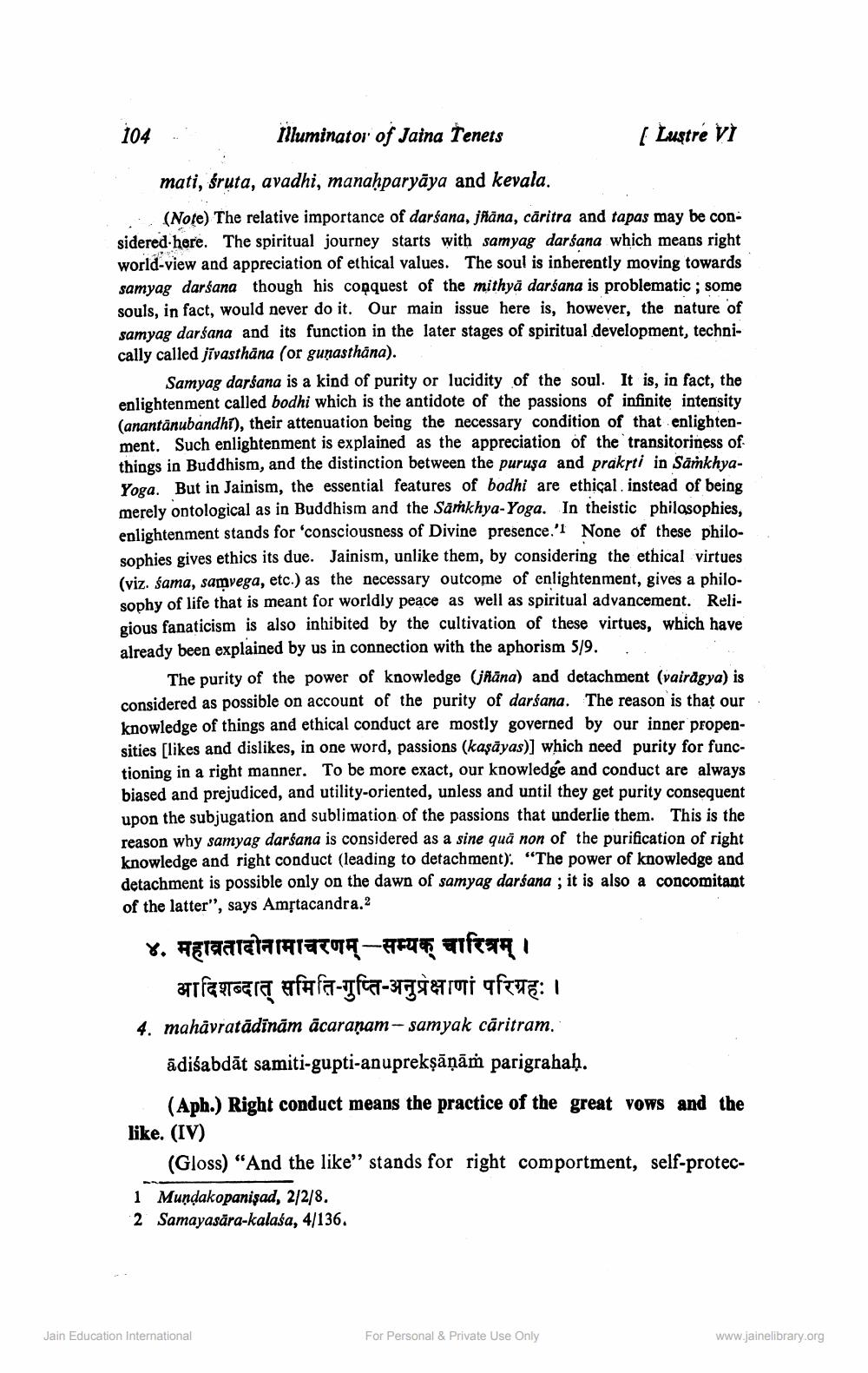________________
104
Illuminator of Jaina Tenets
[ Lustre VI
mati, śruta, avadhi, manaḥparyāya and kevala.
(Note) The relative importance of darśana, jñāna, caritra and tapas may be considered here. The spiritual journey starts with samyag darśana which means right world-view and appreciation of ethical values. The soul is inherently moving towards samyag darśana though his conquest of the mithya darśana is problematic; some souls, in fact, would never do it. Our main issue here is, however, the nature of samyag darśana and its function in the later stages of spiritual development, technically called jīvasthana (or gunasthāna).
Samyag darśana is a kind of purity or lucidity of the soul. It is, in fact, the enlightenment called bodhi which is the antidote of the passions of infinite intensity (anantānubandhi), their attenuation being the necessary condition of that enlightenment. Such enlightenment is explained as the appreciation of the transitoriness of things in Buddhism, and the distinction between the purusa and prakrti in SāṁkhyaYoga. But in Jainism, the essential features of bodhi are ethical instead of being merely ontological as in Buddhism and the Samkhya-Yoga. In theistic philosophies, enlightenment stands for 'consciousness of Divine presence.' None of these philosophies gives ethics its due. Jainism, unlike them, by considering the ethical virtues (viz. sama, samvega, etc.) as the necessary outcome of enlightenment, gives a philosophy of life that is meant for worldly peace as well as spiritual advancement. Religious fanaticism is also inhibited by the cultivation of these virtues, which have already been explained by us in connection with the aphorism 5/9. .
The purity of the power of knowledge (jñāna) and detachment (vairagya) is considered as possible on account of the purity of darśana. The reason is that our knowledge of things and ethical conduct are mostly governed by our inner propensities (likes and dislikes, in one word, passions (kasāyas)] which need purity for functioning in a right manner. To be more exact, our knowledge and conduct are always biased and prejudiced, and utility-oriented, unless and until they get purity consequent upon the subjugation and sublimation of the passions that underlie them. This is the reason why samyag darśana is considered as a sine qua non of the purification of right knowledge and right conduct (leading to detachment): "The power of knowledge and detachment is possible only on the dawn of samyag darśana ; it is also a concomitant of the latter", says Amstacandra.2 8. AgraarataTAITTOTÆ AFU afrTAI
आदिशब्दात् समिति-गुप्ति-अनुप्रेक्षाणां परिग्रहः । 4. mahāvratādinām ācaraṇam- samyak cāritram.
ādiśabdāt samiti-gupti-anuprekşāņām parigrahah.
(Aph.) Right conduct means the practice of the great vows and the like. (IV)
(Gloss) "And the like” stands for right comportment, self-protec1 Mundakopanişad, 2/2/8. 2 Samayasăra-kalasa, 4/136.
Jain Education International
For Personal & Private Use Only
www.jainelibrary.org




